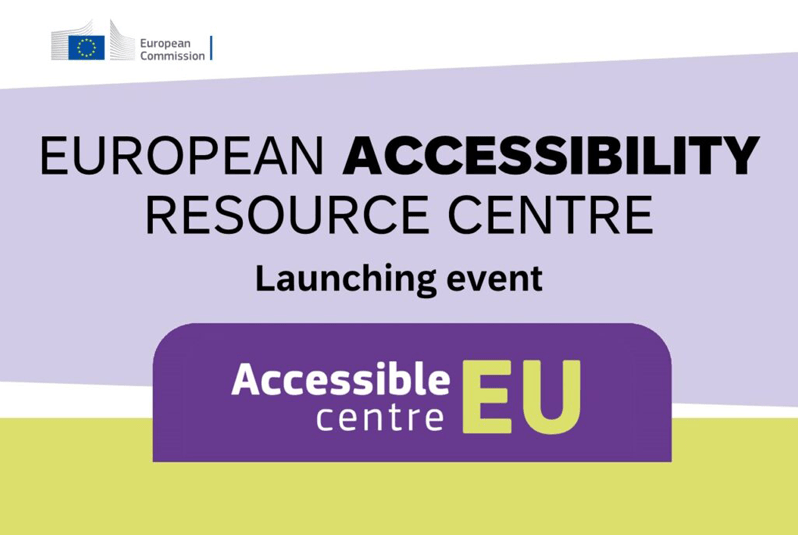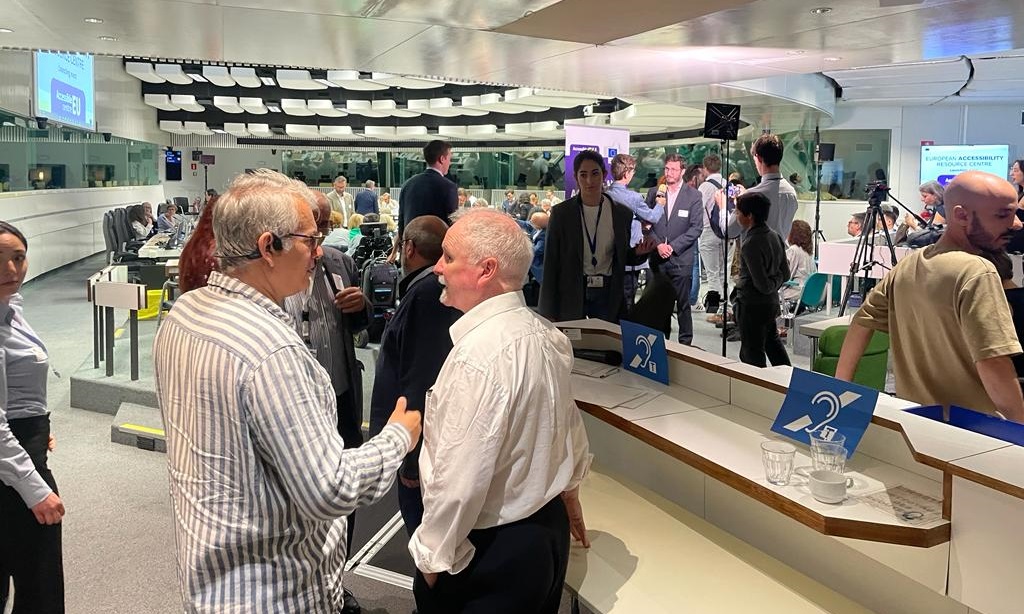

On July 4th, we attended the inauguration of the European Centre for Resources in Accessibility (AccessibleEU) as part of the community of experts and companies in the sector invited to the event.
This flagship initiative, an integral part of the European Union’s Disability Rights Strategy 2021-2030, aims to increase the coherence of accessibility policies, monitor and promote regulatory compliance, and facilitate access to relevant knowledge about design, development, harmonization, and more.
The goals of AccessibleEU are ambitious and cover various key areas to promote inclusion and accessibility throughout the European Union:
- Creation of an online library on accessibility.
- Formation of an accessibility ecosystem consisting of experts, organizations of people with disabilities, public administration, and private business.
- Establishment of a one-stop shop for knowledge about accessibility.
- Promotion of active participation of people with disabilities.
- Professionalization of accessibility.
- Increasing the availability of more accessible products, services, and infrastructures throughout the EU.
- Ensuring uniform application of accessibility regulations with high quality standards.
inSuit and the importance of digital accessibility present at AccessibleEU
The inauguration of the European Centre for Resources in Accessibility (AccessibleEU) took place at the European Economic and Social Committee (EESC) in Brussels, where leaders and experts from various fields gathered to kick off this important initiative.
The consortium in charge of this project, led by the ONCE Foundation, also includes the participation of the European Network for Accessible Tourism (ENAT), the European Association of Service Providers for Persons with Disabilities (EASPD), the Johannes Kepler University Linz (Austria), and the Spanish Association for Standardization (UNE).
The launch event was held in a hybrid format, combining in-person and online attendance. To ensure accessibility for all participants, the international sign system was implemented, and real-time subtitles were provided, as well as simultaneous English-Spanish translation.

The event’s agenda was enriching and diverse, aiming to highlight the central role of AccessibleEU as a European meeting point around accessibility.
It was structured in sessions and technical panels, where crucial topics related to the implementation of accessibility policies in the Member States of the European Union were debated.
In the first session, the objectives and expected outcomes of the center were presented. Subsequently, three technical panels were held:
Challenges in implementing accessibility legislation in the EU
This panel addressed the difficulties faced by member countries in implementing European laws at the national level, as well as strategies, good practices, and success stories that can be adopted.
Connecting stakeholders
In this session, the needs of different agents involved in the development and use of accessible environments, products, and services were shared. Representatives from the private sector, public administration, and users actively participated in the discussion.
Training of accessibility professionals
The third panel focused on training strategies in accessibility and the difficulties and success stories in implementing accessibility in university academic programs and the development of technological tools for mass and open training.
The conclusions of the panels provided valuable insights into the challenges and opportunities facing Europe in terms of accessibility.
Additionally, a networking space was facilitated during a meal, where participants continued to share experiences and knowledge about activity and perspectives related to accessibility in the different EU Member States.
AccessibleEU presents itself as a crucial resource to drive greater inclusion and accessibility throughout Europe, and inSuit is proud to have been part of this historic milestone that will promote a fairer and more accessible society for all.
Would you like to discover the operation of the accessibility platform that has made inSuit known and enabled our attendance at the event?


